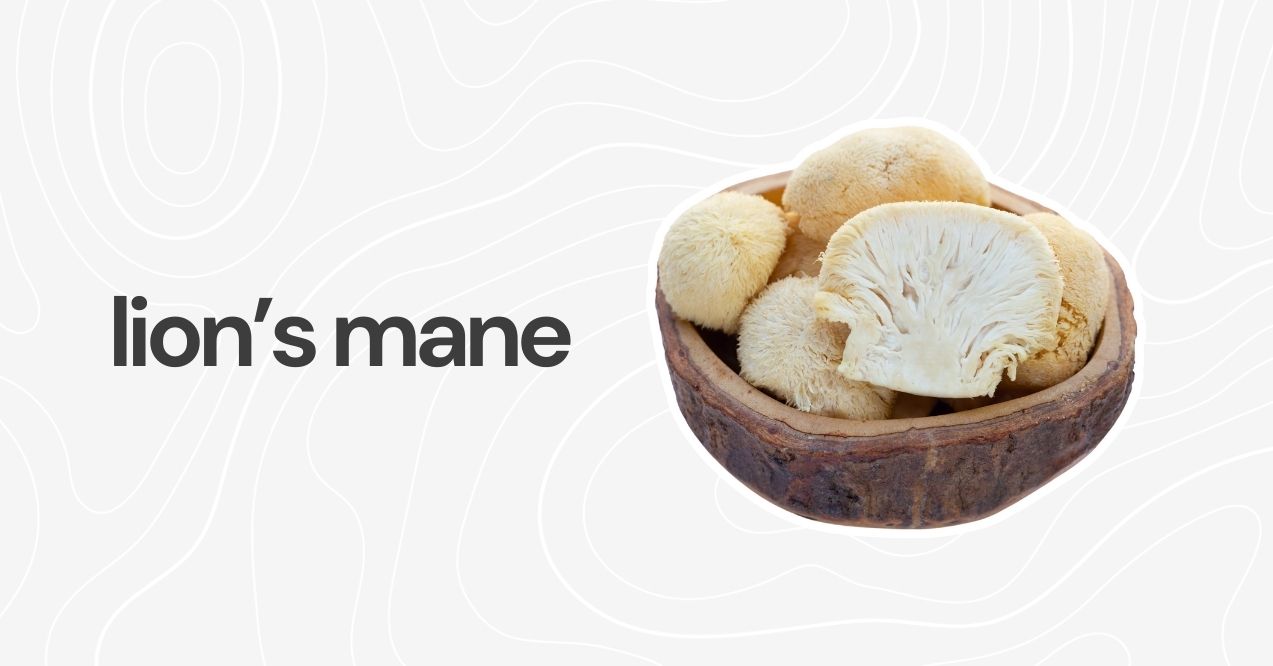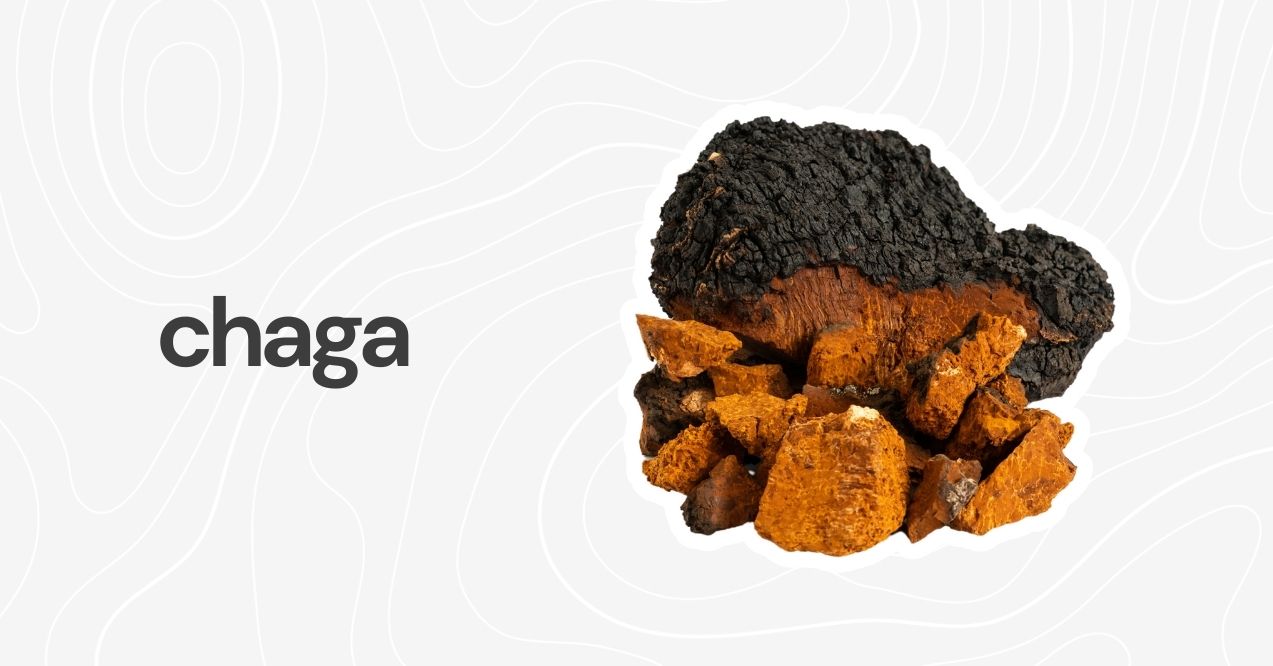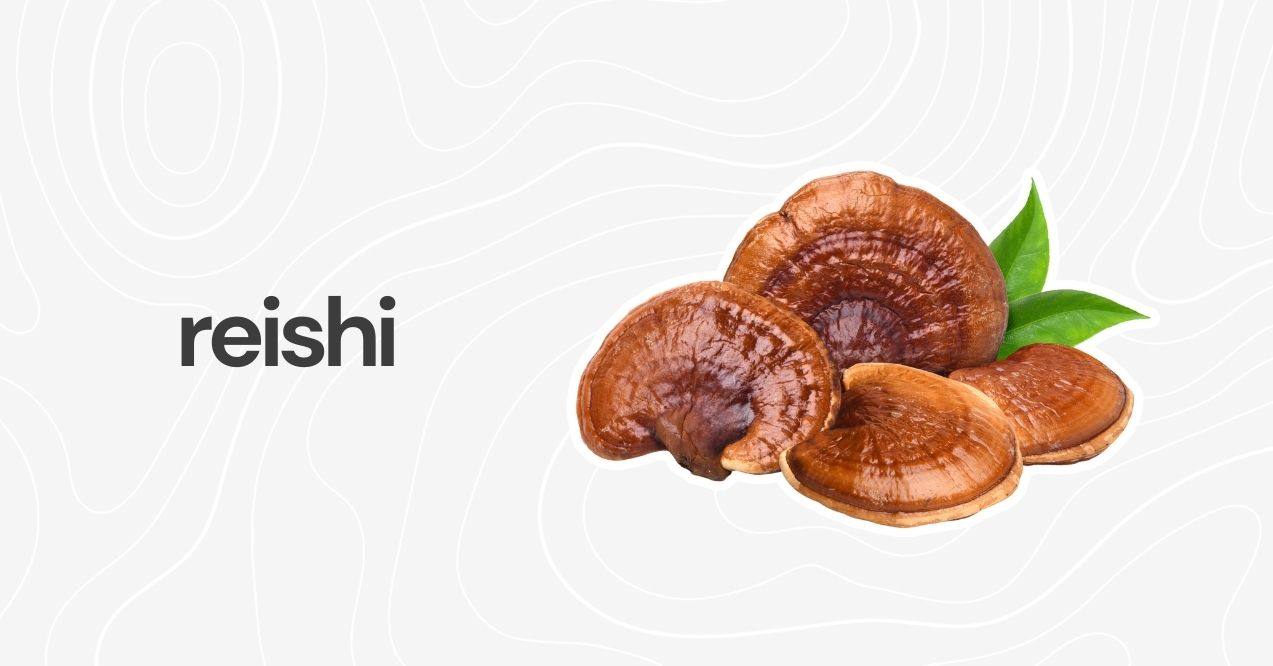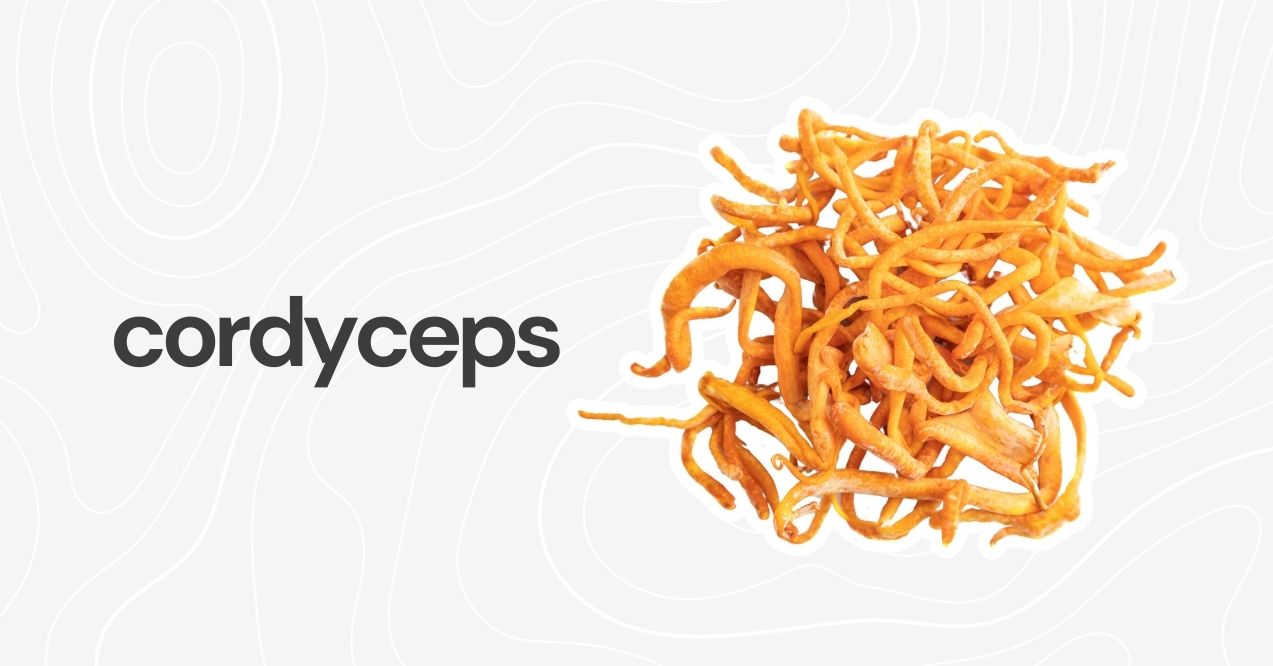5 Best Mushrooms for Mental Clarity
Finding the best mushrooms for mental clarity might seem like a new trend. However, mushrooms as a food supplement have had historical significance in various cultures throughout the ages due to their potential healing properties, specifically concerning brain functions.
Mushrooms are like the cool kids in the biological world – they have their own kingdom. They might seem like plant cousins with their root-like structures, but here is a twist: mushroom cells have a unique layout, protected by chitin walls. Chitin walls sometimes are so tough that they make mushrooms inedible. And guess what? When it comes to food, mushrooms are more like foragers than farmers. They slurp up dissolved molecules from their surroundings, which makes them full of beneficial nutrients.
And by the way, humans and mushrooms share nearly half of our genetic blueprint. How amazing is that? We also struggle with many of the same health issues as our fungal friends. This shared genetic heritage means we can tap into the incredible immune-supporting perks and other survival strategies that mushrooms have developed.
What are functional mushrooms? These are specific types that have been recognized for their health-enhancing properties, including boosting mental clarity and supporting immune function. Researchers have also found that as many as 270 species of mushrooms can be considered potential therapeutic agents that may promote better mental well-being and be used as food supplements. Similarly, certain herbs for mental clarity can also complement these benefits, offering additional cognitive enhancements.
Join us as we dive into the ways you can supercharge your brain through dietary choices and the potential benefits of mushrooms for enhanced mental clarity.
Key Article Findings:
How do Functional Mushrooms Work?
What are functional mushrooms? Functional mushrooms are a distinct category of fungi known for their health benefits that go beyond their nutritional value. These benefits vary depending on the specific mushroom species used, but functional mushrooms are generally grouped into two main categories: medicinal mushrooms and adaptogenic mushrooms.
Medicinal mushrooms work through a combination of bioactive compounds and their interactions with the human body’s physical and physiological processes. Many of these mushrooms possess antioxidative and cytotoxic properties, which means they can potentially inhibit oxidative damage and combat harmful cells.
The presence of polysaccharide β-glucans or polysaccharide-protein complexes within mushroom extracts and powders may hold significant therapeutic potential for human health.
It is also important to note that these medicinal mushrooms are classified as dietary supplements rather than pharmaceutical medicine, so they cannot be used as alternatives to prescription medication.
The other group is adaptogenic mushrooms.
Adaptogens are special compounds that assist our bodies in coping with and resisting chemical, biological, and physical stressors. Unlike traditional remedies that might soothe a cough, causing a headache, adaptogens step in to support our body’s natural immune defense and stress response systems, helping them function optimally.

Can Mushrooms Help Improve Brain Health?
We have all been there: after an eight-hour workday, we still have laundry and a list of errands to run. Everything gets foggy and we get that feeling like our brain is running on empty, and we start wondering if we will make it through the day at all. However, despite these moments of mental fatigue, there is hope on the horizon.
Mushrooms, long revered for their unique flavors and culinary versatility, have been the subject of growing interest in the study of brain health. Although further research is necessary to fully understand the precise mechanisms through which functional mushrooms enhance brain health, existing studies have demonstrated their positive impact on cognitive function and memory.
Researchers have also found that with the inclusion of appropriate brain-nourishing foods like healthy fats and leafy greens, as well as the use of food supplements like medicinal mushrooms, we may have the ability to support and enhance our memory, cognition, and the overall health of our neurons.

Best Mushrooms for Mental Clarity
In our fast-paced world, life might be a whirlwind. To keep up with the race, a sharp mind is your secret weapon. Sure, staying hydrated, working out, and practicing mindfulness are all important. But when you want that extra boost, turn to nature’s own mental clarity champions.
Say goodbye to fleeting fixes that leave you hanging. The best mushrooms for mental clarity go beyond the surface, tackling the root of brain fog head-on. Incorporate them into your daily routine, and you might experience crisper thinking, improved memory, and better mental focus. Are you ready to elevate your mental prowess? Let’s dive into the world of the best mushrooms for mental clarity.
1. Lion’s Mane (Hericium Erinaceus)

Hericium Erinaceus, commonly known as Lion’s Mane Mushroom or Hedgehog Mushroom, is an edible fungus with a rich history in traditional Chinese medicine.
As we age, it’s not uncommon to experience a dip in our ability to concentrate and stay focused. This is often a result of wear and tear on our brain cells and the natural process of neuronal shrinkage. As our neurons, the building blocks of our brain, begin to decline in number and functionality, we might find ourselves struggling with tasks that once seemed effortless.
Lion’s Mane has the potential to boost brain health by promoting the growth and strengthening of the connections between brain cells. This natural substance aids in improving memory, focus, and overall cognitive function, ensuring the brain operates more efficiently and effectively.
When it comes to consuming Lion’s Mane mushrooms, you’ve got a range of tasty options. This particular mushroom is popular among vegans and vegetarians as a meat substitute. You can simply slice them up and sauté them with a touch of garlic and olive oil, or try using a blend of barbeque spices to imitate that pulled pork taste and texture. These mushrooms also make a fantastic addition to soups, stews, or chili.
However, there is a bit of a catch when it comes to cooking Lion’s Mane mushrooms. They might be a bit tricky to come by. Unless you have access to a local farmers market or a specialty health food store, it might be more convenient to try the benefits of Lion’s Mane as a supplement instead.
2. Chaga (Inonotus Obliquus)

For ages, Chaga mushrooms have been revered as a medicinal treasure in Siberia and various regions of Asia, known to the locals for their potential to support immunity and enhance overall well-being.
During periods of stress, the adrenal glands kick into gear and release cortisol, a hormone that aids the body in managing stress. Yet, when stress persists for an extended period, cortisol levels can skyrocket, potentially leading to hormonal imbalance. Chaga’s adaptogenic properties come in handy, helping in balancing cortisol levels.
Chaga has thick cell walls crafted from chitin, a naturally occurring substance that ranks among the toughest materials found in nature. This resilience renders Chaga indigestible for humans unless it undergoes proper preparation. So the best way to consume Chaga would be either as a tea or powder supplement.
3. Reishi (Ganoderma Lucidum)

With roots deeply embedded in traditional Chinese and Japanese medicine, these mushrooms are like the wise elders of the natural world – Meet Reishi mushrooms, formally known as Ganoderma lucidum.
These mushrooms contain bioactive compounds, including polysaccharides, triterpenes, and various antioxidants, which are believed to contribute to their therapeutic properties.
Not only might Reishi mushroom supplements brighten your mood, but they also have the potential to give your energy levels a boost and wave goodbye to fatigue. These supplements are also rich in antioxidants, which may support the body’s natural defense mechanisms against environmental stressors. Many individuals incorporate Reishi into their daily routine to experience an enhanced sense of vitality and well-being.
If you’re wondering How Long Does It Take for Reishi Mushrooms to Work, with consistent use, many people notice benefits within two to four weeks. Their adaptogenic properties work gradually, helping the body adjust to stress over time. While some individuals may experience subtle changes in energy levels or improved sleep within a few days, their full effects—such as immune support and stress balance—typically become more noticeable after one to two months of regular consumption.
It’s a bit of a bummer, but our bodies struggle to crack the tough cell walls of Reishi mushrooms. So, to unleash their potential, we have to turn to Reishi mushroom powders and extracts.
4. Turkey Tail (Trametes Versicolor)

Turkey Tail mushrooms are nature’s colorful artists, decorating tree trunks and fallen logs in lush wooded forests. These vibrant fungi grace the landscapes of many corners of the globe, including the United States.
Their funny name originates from the charming rings of myriad colors that circle them, quite like the tail feathers of a wild turkey.
Turkey Tail mushrooms are packed with antioxidants like phenols and flavonoids. These compounds play a critical role in neutralizing harmful free radicals that contribute to oxidative stress in the brain. By reducing oxidative stress, Turkey Tail mushrooms may help safeguard brain cells.
In essence, Turkey tail is like a friend to your body and mind. It aims to promote a harmonious balance, making your journey through life a bit smoother, more vibrant, and full of vitality. It’s not about curing or treating diseases, but rather about supporting your overall wellness, making each day a little brighter and more balanced.
While turkey tail mushrooms are technically edible, they come with a bit of a culinary challenge. Their texture leans toward the tough and leathery side. This is why, in the case of wild-harvested turkey tail, the usual practice is to dry them out, transform them into a fine powder, and then enjoy them as a best tea for mental clarity. For those feeling a bit more adventurous, these mushrooms can also make an interesting addition to soups or blend seamlessly into smoothies.
5. Cordyceps

Cordyceps held such esteemed status in the past that they were a much-desired treasure reserved only for the Emperor’s royal hall in ancient China. Over the millennia, these remarkable mushrooms have been a staple in traditional herbal medicine, and their timeless appeal persists even in the contemporary world.
What makes Cordyceps stand out in the realm of functional mushrooms is their unique ability to support not only mental well-being but also physical performance.
Cordyceps have been researched for their potential to enhance the body’s ability to use oxygen efficiently. This can benefit brain function by ensuring that the brain receives an optimal supply of oxygen, which is essential for cognitive processes.
Cordyceps are also considered adaptogens, which means they may help the body adapt to stress and maintain balance. Reducing stress levels may indirectly support better mental focus.
The challenge with Cordyceps mushrooms is that they’re not your everyday grocery store find, they are unlikely to rub shoulders with your chestnut mushrooms! Fortunately, there’s a simpler route: dried cordyceps.
With this, you can brew up a classic Cordyceps tea. This traditional beverage is a fantastic way to reap the benefits of Cordyceps because hot water does wonders for drawing out its nutrients. Just toss the dried mushrooms into hot water and let them steep.
You will need to give them a bit more time compared to your regular leaf tea. Most recipes recommend simmering the mushrooms for at least 15 minutes, and some even suggest going as long as 45 minutes.
For the simplest Cordyceps consumption method, consider daily capsules. However, a word of caution when it comes to capsules – the source matters. Not all suppliers are equally reputable, and some may use unwanted filler ingredients to bulk up their capsules. Additionally, the capsules themselves often contain animal-derived components like gelatin, which may not be suitable for those following a plant-based diet.
Additional Health Benefits of Mushrooms
Did you know that you cannot overcook a mushroom? They make a perfect addition to your daily meal as mushrooms, in general, offer excellent nutrition with low calorie content.
Mushrooms are also good at supporting our immune system. When choosing the best mushrooms for health look for something like King Oyster (also known as King Trumpet) mushrooms or Shiitake mushrooms which are a source of essential nutrients such as vitamin C, B vitamins, vitamin D, and antioxidants like selenium and choline.
Mushrooms are a good source of potassium, a mineral that is essential for various body functions, including heart health. Potassium helps relax the circulatory system, which in turn can lower arterial pressure.
In addition to heart health, potassium plays a critical role in other body functions. It is essential for nerve and muscle cell functioning, aiding in muscle contraction and the transmission of nerve impulses. Ensuring adequate intake of potassium supports overall bodily function, muscle strength, and a responsive nervous system.
Try Out Trumeta Metabolic Reds for Brain Health
Maintaining a healthy lifestyle led by a balanced nutrition diet, sufficient sleep, regular physical activity, and mindfulness practices is fundamental for optimizing your brain’s performance. Additionally, integrating appropriate supplements like functional mushrooms for mental clarity into your diet can further support your cognitive well-being.
As we mentioned before, while it is common to consume most of the functional mushrooms as a part of a meal, some of them are hard to come by. Trumeta Metabolic Reds found a convenient solution to this problem. These supplements are meticulously crafted and packed with dry organic mushroom powder, combined with metabolism-optimizing herbs for mental clarity.

This powder includes all the best mushrooms for mental clarity, such as Cordyceps, Reishi, King Oyster mushrooms, Shiitake, Lion’s Mane, and Turkey Tail mushrooms all in one package.
These supplements excel at supporting digestive health, healthy skin, shiny hair, and strong nails. Furthermore, their effortless consumption makes them a delightful addition to your daily routine.
Alternatively, if mushrooms for mental clarity do not sound appealing to you, you can try another similar organic supplement – Trumeta Metabolic Greens. It has everything you need to boost your energy levels and improve your gut microflora. That, in turn, will help you better concentrate on difficult and stressful tasks throughout the day.

So, if you are considering giving supporting your immune system, your overall well-being, or improving your mental clarity, why not give Trumeta supplements a shot and see how they can add some sparkle to your life?
Conclusion
After diving into the realm of mushroom kingdom, it becomes more clear that these fungi are not just ingredients in our dishes but also a food supplement that can potentially boost our cognitive function and mental clarity.
From the immune-supporting powers of Cordyceps and Reishi to the antioxidant magic of Chaga and the brain-optimizing benefits of Lion’s Mane, each of these mushrooms brings its own unique perks that can supercharge your diet.
It’s important to note that while there is promising research on the health benefits of medicinal mushrooms, more studies are needed to fully understand their mechanisms of action and the extent of their therapeutic potential.
Always remember, as with any supplement or dietary addition, it is advisable to consult with a healthcare professional before incorporating functional mushrooms into your routine, especially if you have specific health concerns or are taking prescription medications.
functional mushrooms are a category of fungi known for their potential health benefits beyond their nutritional content. Unlike regular culinary mushrooms, which are primarily used to add flavor and texture to a variety of dishes, functional mushrooms contain bioactive compounds that may offer wellness and health-supporting properties.
while culinary mushrooms can be enjoyed for their taste and basic nutritional value, functional mushrooms are often incorporated into diets to potentially support immune health, cognitive function, and overall vitality, among other wellness objectives.
it’s essential to note that while there’s a growing interest in the potential health benefits of functional mushrooms, individual responses can vary, and they should be consumed as a part of a balanced diet and healthy lifestyle.
functional mushrooms, like Lion’s Mane and others, have been consumed for their potential cognitive benefits. However, as with any supplement or dietary addition, it’s essential to consider possible side effects or interactions with other medications or conditions.
some individuals might experience digestive discomfort, allergies, or skin rashes, although these side effects are relatively uncommon. It’s always advisable to start with a small dose to monitor your body’s reaction. When considering functional mushrooms for brain health, it’s also crucial to consider potential interactions with medications or underlying health conditions.
we recommend consulting with a healthcare professional before adding these or any supplements to your regimen. They can provide personalized advice based on your health status, existing medications, and individual needs, ensuring safety and efficacy in supporting cognitive health.
the time it takes to observe noticeable improvements in mental clarity after incorporating functional mushrooms can vary widely among individuals. Several factors can influence this, including the individual’s overall health, the specific type of functional mushroom, the dosage, and frequency of consumption. Some people may begin to notice subtle changes in their mental clarity and focus within a few weeks, while others might need a few months to experience noticeable benefits.
it is essential to approach the use of functional mushrooms with patience and realistic expectations. these are not quick fixes but rather natural supplements that can potentially support cognitive health over time. For the best results, it’s recommended to maintain a balanced diet, regular physical activity, and adequate sleep, alongside the consumption of functional mushrooms.
always consult with a healthcare professional for personalized advice and recommendations based on individual health needs and conditions.
Advertisement. This site offers health, wellness, fitness and nutritional information and is designed for educational purposes only. You should not rely on this information as a substitute for, nor does it replace, professional medical advice, diagnosis, or treatment. If you have any concerns or questions about your health, you should always consult with a physician or other health-care professional. Do not disregard, avoid or delay obtaining medical or health related advice from your health-care professional because of something you may have read on this site. The use of any information provided on this site is solely at your own risk.







